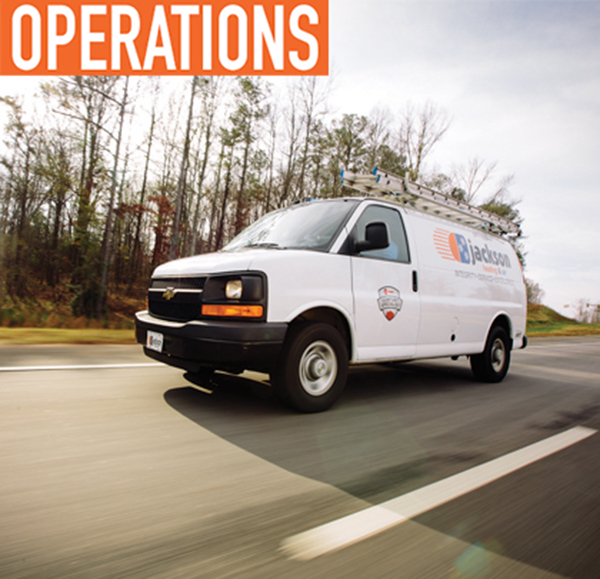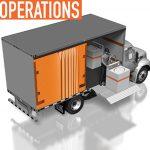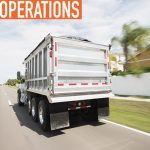It’s hard to turn down a vehicle that offers low total cost of ownership, more comfort for drivers, reliable operation, and no additional fluid or filter requirements to meet emissions regulations. And, for fleets using propane autogas vehicles, that is just the start of the list of advantages that can be enjoyed. But even as more than 200,000 propane autogas vehicles are used by fleets across the country, with sales growing each year, there are still a lot of myths in the marketplace regarding the use of this alternative fuel.
The following are some of the most common myths associated with propane autogas:
- Myth: Switching to Propane Autogas Doesn’t Make Sense when Oil Prices are Low
Here’s the truth: Propane autogas vehicles provide the lowest total cost of ownership over the life of a vehicle when compared with gasoline or diesel. Because propane autogas is a by-product of petroleum processing, when oil prices decline, the price of propane autogas also declines. Fleet managers can be further insulated from oil market price fluctuations by building a long-term fuel contract with a propane retailer. So, even if prices of gasoline or diesel return to the range of $3 to $4 per gallon seen a couple years ago, a fleet operating with propane autogas will keep its fuel prices at the contracted price. Furthermore, much of the US stock of propane autogas is produced domestically, making prices much more stable than imported fuels.
Propane autogas also eliminates hidden costs required with today’s diesel emissions technology: fluids, filters, excessive maintenance requirements, and unexpected repairs that can get expensive and hurt productivity. Without these hidden costs, propane autogas vehicles spend less time in the shop and more time on the route, serving customers. So, even when conventional fuel prices are low, propane autogas continues to provide substantial savings for fleets. - Myth: Refueling Infrastructure is Difficult to Use and Expensive
Actually, refueling with propane autogas is simple, quick, safe, and mirrors the experience of refueling with gasoline and diesel in many ways. Quick-connect nozzles are lightweight and capable of one-handed operation while providing a secure lock while refueling, which eliminates concerns about evaporative emissions or fuel spills. Another benefit drivers are quick to point out when refueling with propane autogas is that they do not smell like fuel while on their route during the day or when they return home after work.
Propane autogas refueling can be tailored to a fleet’s budget, space, and route needs. For example, an on-site standard private station can handle the demands of smaller fleets with up to 25 vehicles. Fleets using infrastructure provided or leased from a propane retailer may only need to supply $1,500 to $5,000 to prepare a site with necessary crash protection and to meet electrical requirements. A fleet that owns its infrastructure will have the additional costs of purchasing the propane tank, pump, motor, and dispenser for costs ranging from $25,000 to $50,000.
On-site private stations can also grow with the needs of the fleet by installing a larger propane tank, multiple fuel dispensers, and overhead canopies. Site prepwork for a basic two-dispenser setup, for fleets working with a propane retailer to lease infrastructure, typically runs between $3,000 to $7,500. The cost to purchase infrastructure varies with the complexity of the station.
Another option for fleets is to use an existing network of propane autogas refueling stations. These networks provide security and the convenience of 24/7 access through a card lock system, but don’t require investing in infrastructure or additional space. If a network isn’t currently available, a propane retailer may be able to create one for a large fleet that can guarantee enough fuel use to support the network. Alternatively, multiple fleets can team up to provide adequate load for requesting a refueling network, too.

- Myth: Propane Autogas is Inaccessible
In reality, propane autogas is domestic, affordable, and accessible. With more than 12,000 propane retailers located throughout the US, there is a propane partner in proximiting to almost every fleet.
For vehicle fleets that travel beyond the driving range of a single tank fill, certified aftermarket bi-fuel systems are also available, which allow the driver to carry gasoline as a secondary fuel, if needed. This freedom eliminates any “range anxiety” that a driver might not find a propane autogas refueling station or return to base before running out of propane autogas. - Myth: Propane Autogas isn’t that Much Better for the Environment
In fact, propane in its natural state is non-toxic and a non-contaminant of air, land, and water resources. In the unlikely event of a leak or spill, propane harmlessly dissipates into the atmosphere, unlike gasoline, diesel, ethanol, and biodiesel, which are identified as hazardous fluids and require hazmat environmental cleanup. Propane autogas also produces fewer emissions, notably greenhouse gases and NOx emissions, when compared to other fuels. - Myth: It isn’t Safe to Use Propane Autogas
Time has shown that propane autogas is—without a doubt—a safe means of transport, having been deployed without a single catastrophic event by fleets since the 1970’s. Propane autogas fuel tanks are 20 times more puncture-resistant than today’s gasoline fuel tanks and each fuel system is equipped with built-in safety devices to stop the flow of fuel. Fuel systems meet or exceed all Federal Motor Vehicle Safety Standards, which include crash worthiness and fuel conspicuity.
It’s usually the case for misinformation to circulate around alternative or emerging solutions that are positioned against long-established practices, in this case gasoline and diesel fuel. But next to the facts, the myths surrounding propane autogas don’t hold up.
ABOUT THE AUTHOR:
Michael Taylor is the director of autogas business development at the Propane Education & Research Council. Find out more on why propane autogas is a good fit for work truck fleets, visit www.propane.com/on-road-fleets/.
_______________________________________________________________________
MODERN WORKTRUCK SOLUTIONS: SEPTEMBER 2017 ISSUE
Did you enjoy this article?
Subscribe to the FREE Digital Edition of Modern WorkTruck Solutions magazine.
![]()




